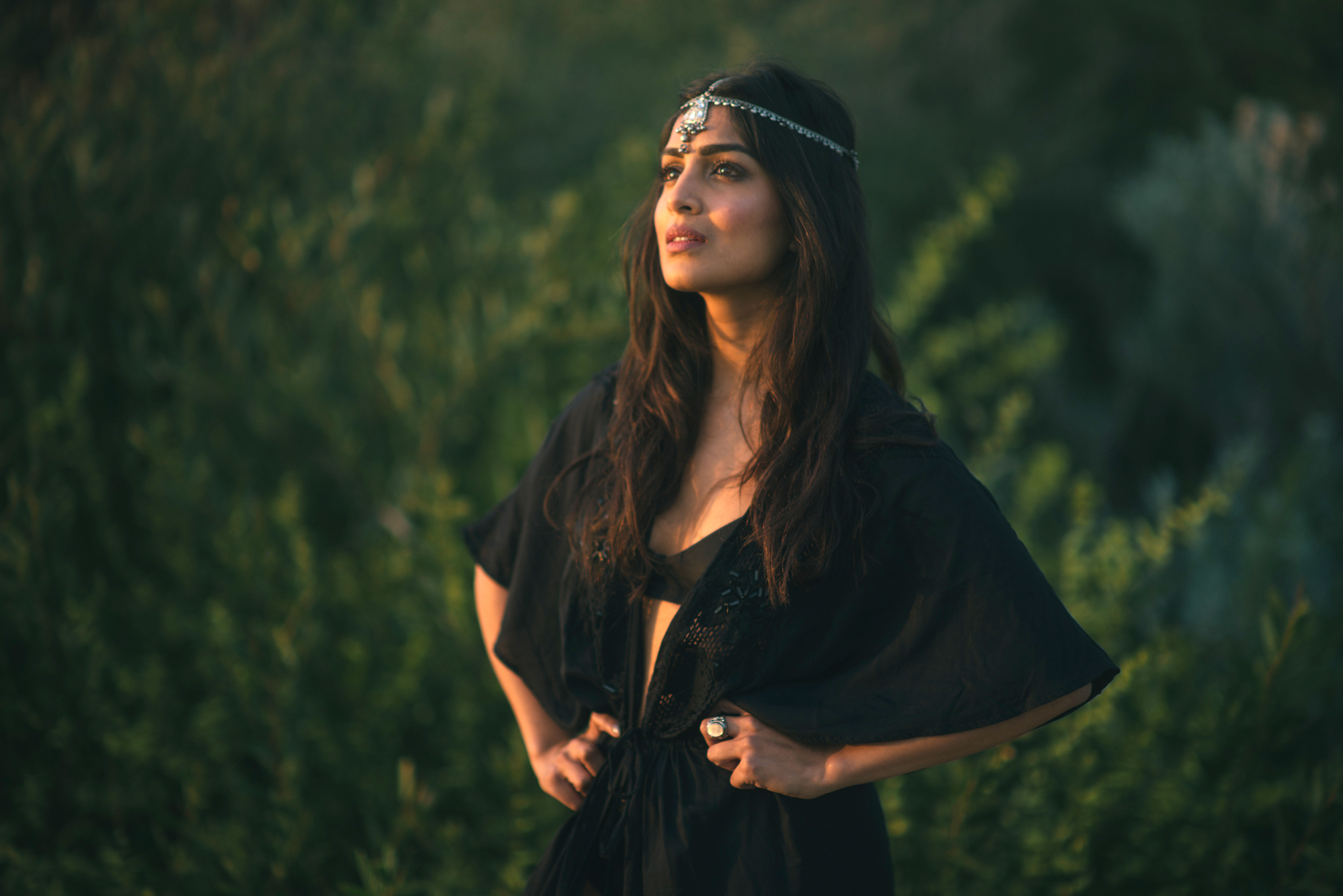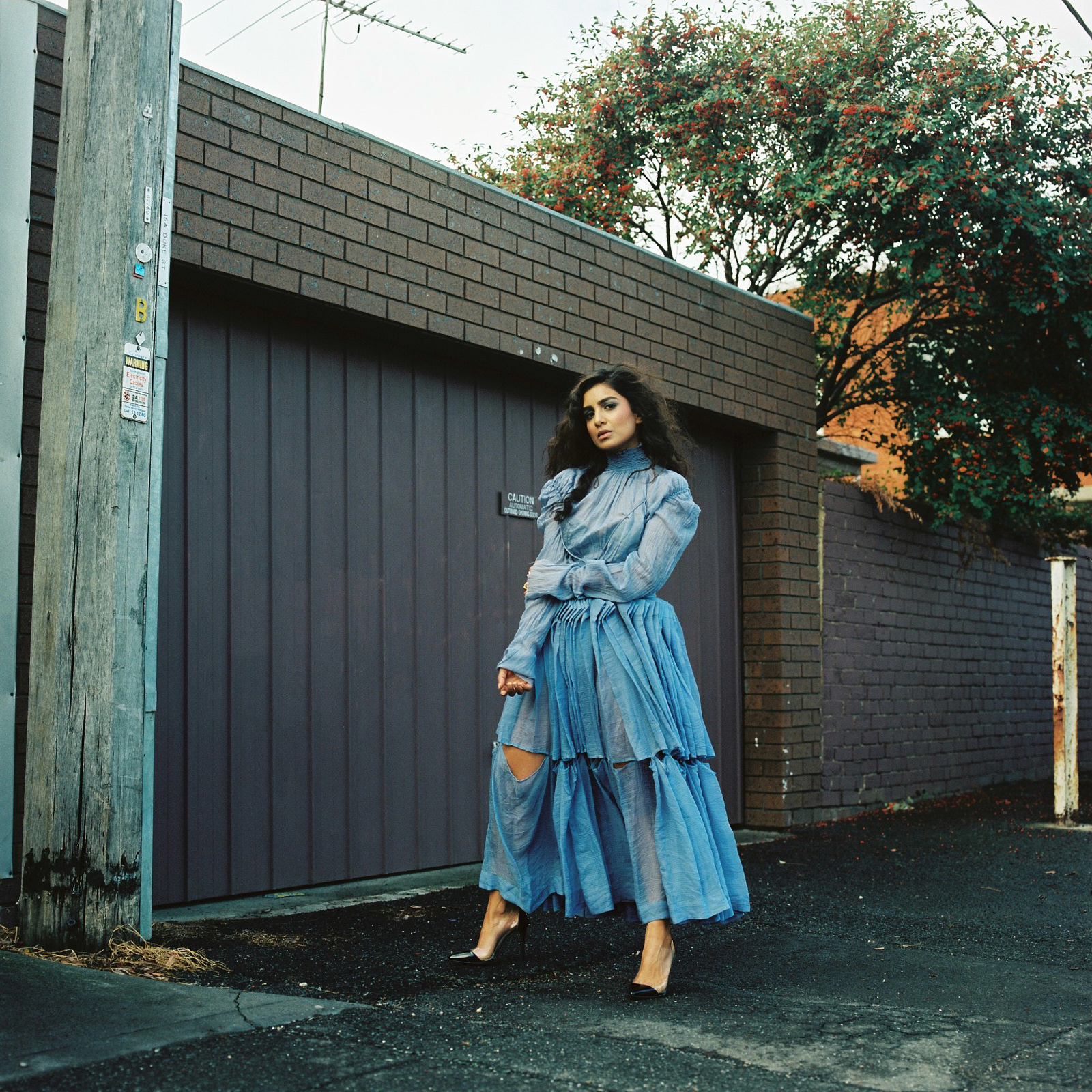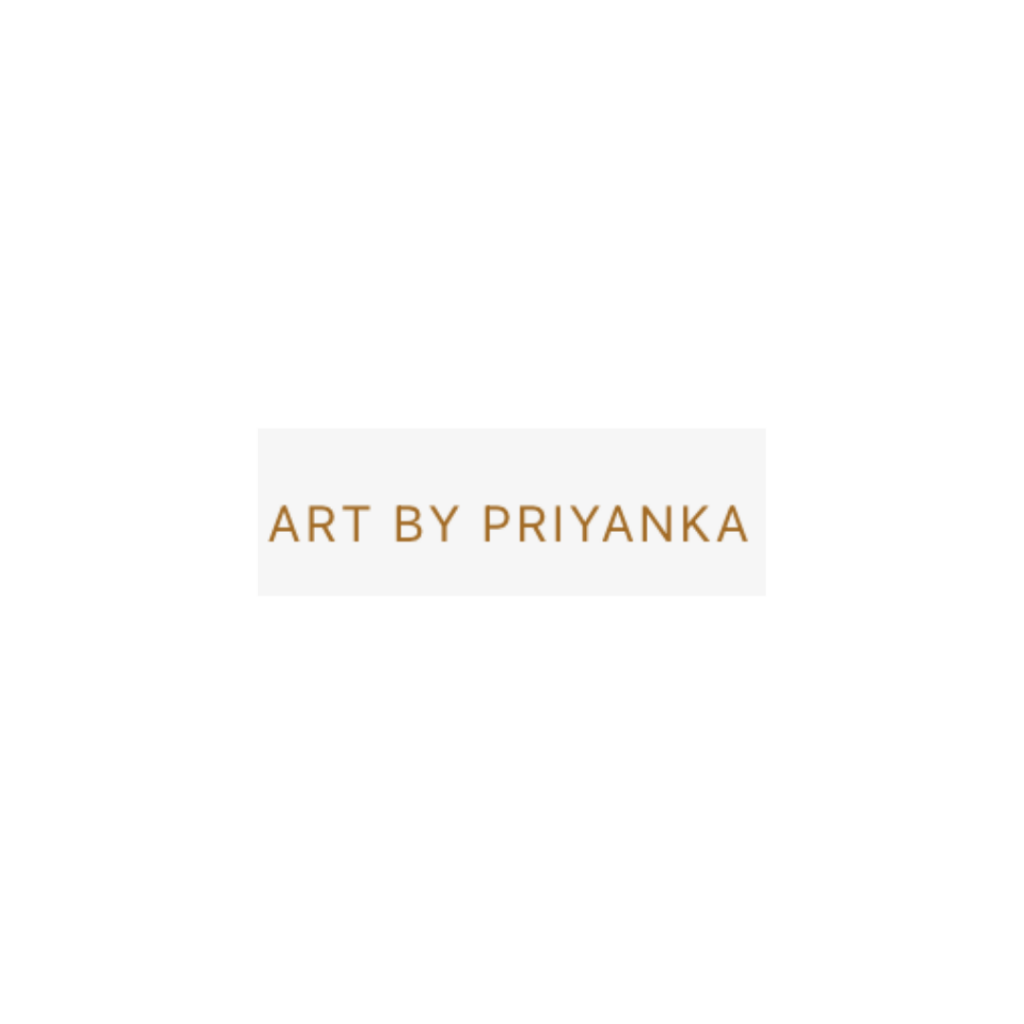Existing beyond labels: Meet Pallavi Sharda, the multi-hyphenate transcending expectations across industries
Pallavi Sharda doesn’t believe in using labels to explain who she is and what she does, and it’s easy to see why. Some of the many hats she wears include trained Indian classical and contemporary dancer, actor, public speaker, writer, activist, and honours graduate (LLB/BA Media & Comm/Dip. French) from the University of Melbourne. Her eclectic interests and body of work across industries defies being pinned down to any one job title. Half amused and exasperated, she shared, “Even people close to me sometimes say it’s weird that I have so many different things that I do, but I’d feel untruthful if I just allowed myself to be boxed in by one particular identity.”
In this fifth and final profile in Australia’s Stellar South Asian Women 2021 series, the Australian South Asian Centre (ASAC) is honouring and recognising the accomplishments of Pallavi Sharda whose film and television performances have been critically acclaimed across genres internationally.
Funny, articulate, and thoughtful, Pallavi is a highly-educated and passionate creative, undaunted by big dreams, taking risks and standing up for what she believes in. Daizy Maan Kaur, ASAC Co-founder, and I spoke with Pallavi and she openly shared her reflections on her journey so far, her thoughts on spirituality and following creative paths, and her advice for aspiring South Asian creatives.
From Melbourne, big dreams grew
Despite growing up in suburban Melbourne on the other side of the world, Pallavi had big dreams from a young age of becoming a Bollywood actress. Inspired by its magic and creativity she performed in Australia for many years before travelling to her ancestral home, India, to make her childhood dreams a reality.
Pallavi always knew that she wanted to follow a creative path and describes having an inner fire that prompted her to follow her dreams, “It was always there just niggling at me. That fire just never went away, I’ve had it since childhood.”
As Pallavi grew older she realised that these dreams couldn’t be accomplished in Australia and that staying would limit her potential, “I knew that in Australia, pursuing my dreams would mean just performing at ‘ethnic’ and ‘multicultural’ functions. And I thought, ‘Stuff that. It’s important, but I am also capable of so much more.’”
Pallavi acknowledges the privileges and opportunities she’s been afforded through her education and upbringing. As a star academic student with a scholarship to a prestigious private school who graduated high school at fifteen, she went on to study a fast-tracked, double degree in Law/Arts at the University of Melbourne at sixteen. She credits her education with providing her with the tools to speak up in her career.
Pallavi’s parents’ tenacity in their own careers inspired Pallavi to follow her dreams. Both university professors and IIT graduates, they came to Australia as skilled migrants. “Skilled migrants are a very privileged group of migrants. All of us who belong to this group are a unique diaspora, even within the Indian diaspora, globally. Our parents were often very privileged in terms of their education or their family background. For them Australia wasn’t a survival mechanism, they didn’t choose it because they needed a better life. They chose to come to Australia because it was an adventure” said Pallavi.
However, even privileged migrants endured struggle and discrimination in Australia, including Pallavi’s parents who migrated in the eighties. Pallavi said, ‘Highly skilled migrants can often experience cultural blocks that make life in Australia very difficult, even when they’re the smartest people in the room.’ She also recognises that South Asian migrants of previous generations lived through hard times where racial intolerance in Australia was rife. Migrants then didn’t have access to the opportunities available to their children today. However, Pallavi urges current generations to overcome the scarcity, survivalist mindset of older generations’ and instead operate from a place of generosity and abundance.
At twenty, despite securing an offer with a top-tier law firm, Pallavi packed her bags and headed to India. Against all odds, she succeeded in making her Bollywood dreams come true and starred in a number of films including historical dramas Begum Jaan and Hawaizaada, romantic-comedy Besharam, and theatrical musical, Taj Express. But fulfilling her childhood dreams didn’t come without obstacles. Behind the picture-perfect scenes and expertly choreographed dance numbers was an immense amount of hard work and advocacy that she still navigates today.
While working in India, Pallavi’s activism and strong advocacy skills were seen as unpalatable. She recalled being labelled as the ‘difficult, brown foreign woman’ for ‘thinking and talking too much’, shredding her younger self’s assumption that by coming to India she’d finally found a place where she belonged.
“I think the problem, early on, was the fact that I was very well-educated and articulate. At the time, there weren’t many twenty-year-olds saying, ‘Sorry, I’m not signing this. This is a draconian contract.’ Palla views these ‘criticisms’ as assets for operating in a tough industry.“They’re my strengths and I’m so grateful to have been skilled with those critical thinking abilities. Also,” she quipped, “you can’t undo a law degree.”
Pallavi’s self-assessment of her time in Bollywood is a poignant reminder that as South Asian children within the diaspora, we are often made to feel like we don’t belong either in the homeland that we’ve grown up in or the homeland that our parents and grandparents hailed from.
We’re held to different standards, often judged as ‘too much’ or ‘not enough’ because we are a cacophony of intertwining threads of the past, future and present. Our lived experiences extend across different countries and different worlds, some of which don’t exist anymore except in the stories and memories of our loved ones; and these differences are our riches, the inheritance that only we, the children of the diaspora, can lay claim to as beneficiaries. It also lends itself to the understanding that rather than try and find places where we fit in and will accept us, we need to craft our own sanctuaries, and ASAC is an example of this.
Beyond Bollywood
Pallavi understood after achieving her long-held goals of Bollywood success, that she had more dreams to pursue outside of Bollywood. This meant letting go of what she had attained in order to grow and continue following her creative calling.
“After becoming a Bollywood actor I realised I couldn’t be defined solely by this experience, and decided to move on. It didn’t make sense to others, but I had to make choices that allowed me to navigate my life, my way. I refused to be pigeonholed. If you’re choosing to work in any kind of system you have to find a role within it, right? That’s how the world works, but I choose to resist that. I’ve been in and out of those paradigms, but I never want them to define me.”

Notably, in 2017 Pallavi was the first actress of Indian origin to be a leading actress in film and television in Australia, and that same year won the Casting Guild of Australia’s Rising Star Award for her role in ABC’s mini-series Pulse as Tanya Kalchuri. She was further recognised for her industry accomplishments in 2019, where she was named by the Asian Australian Leadership as one of 40 under 40 Most Influential Asian Australians.
Outside of Bollywood, Pallavi has starred in films including, Oscar-nominated Lion, Tom and Jerry (2021), and Save Your Legs. Some of her recent work in television includes Les Norton (2019), ITV’s Beecham House (2019), and ABC’s pandemic-inspired comedy, Retrograde (2020). She also starred in Audible Australia’s first scripted comedy, Slushy (2020). Pallavi’s upcoming projects include the film, Blacksite, with Michelle Monaghan and Netflix rom-com, Wedding Season. Pallavi also shared that her upcoming debut memoir is scheduled for publication in 2022.
On Alchemy and Lightness
Working in the Arts is more than just a job to Pallavi, it’s a calling. “On a more spiritual level, following my creative path is my salvation. That’s my safe space, it’s where I connected to a higher source and I found something purer. I think I was always going to chase that in life, that more singularly, conscious life path. For me, it was the performing arts. That’s where I feel whole.”
Pallavi’s spirituality guides her in all aspects of life; she doesn’t believe in keeping her spirituality in one box and business in another. “Spirituality informs my decision-making, but people who don’t know me well won’t know this about me. It’s important that my actions, even while working, are aligned with conscious living.”
According to Pallavi, one way that this can be achieved is through ‘creative alchemy’. Pallavi credits attending a recent retreat for her introduction to the term. “While I was there I met an interesting individual who is also a multi-hyphenate. He spoke about identity alchemy and creative alchemy, and the notion of being able to be an alchemist in your own life and that really struck a chord with me.”
This concept helped Pallavi make sense of her own multi-hyphenated status and be at peace with the many connected yet distinct parts that makes Pallavi, Pallavi. “I think we’re all alchemists in some way, and some of us choose a dominant thing. In my professional life, my dominant identity is being an actor because it’s how I earn my keep. It’s the most effective way for me to instigate change, so it’s where I’ve been putting my professional efforts. But if I was to talk to you about my creative pursuits, I’d say I’m a dancer before I’m an actor. If we were to talk about how I spend my time when I’m not filming, I write more than I dance or act. It’s a combination, always.”
Pallavi believes that part of the alchemy we practice is nurturing our connection to joy and lightness. Amidst the heaviness she faces, Pallavi maintains her lightness by connecting with her South Asian heritage.
Making connections between South Asian culture, dance and play, she explained, “My culture has been a great source of lightness for me. It’s very playful and allows for play in a way that’s unique a lot of other cultures don’t allow adults to indulge in. If Bhangra music plays we’re all shaking our shoulders, that doesn’t happen in a lot of cultures.” On a more serious note, she continued “It’s a constant balancing act because, unfortunately, I’ve been up against systemic pressures my whole career and life. Being equipped with the language to create change, I feel called to call it out where I see it.”
Echoing the sentiments of Leah Vandenberg, Pallavi recounted her own struggles in the industry as a South Asian actor and the mostly invisible, thankless, yet integral work being done behind the scenes by South Asian creatives so that authentic stories reach our screens.
Pallavi said, “It’s not always fun and games, I don’t always get to just be an actor and walk away from set and say, ‘I’ve had a great day.’ It’s often about being hyper-focused and vigilant to how stories are being told. We’re constantly making sure that there’s nothing that can be faulted for not being well-researched or fleshed out, and I’m very proud of that. I don’t think anyone could see any of the work that I’ve done in the last three or four years in the West and say, ‘Oh, that wasn’t culturally accurate’ or ‘They just took the easy road.’”
On representation, Pallavi said, “An ideal world where representation has already been achieved means that we don’t need to talk about it anymore. Where we are now, particularly, in Australia, it’s about doing a lot of work quickly and putting a lot of effort into achieving representation and going beyond optics. It’s not about using the word ‘diversity’ as a blanket statement for anything that’s non-white and BIPOC. That’s just using labels to create further divide.”
However, Pallavi understands that there’s an interplay that exists between identity and politics which pervades every level of society, including the Arts. “What’s happening is important for change to occur and for conversations to be robust, but it also means that sometimes the nuance and human element is lost. And in their absence we, yet again, just become labels and get talked about and spoken for as opposed to, listened to.”

Creating a better, brighter tomorrow
When speaking of her desire to assist and mentor aspiring South Asian creatives, we learned that Pallavi didn’t have mentors when she was an aspiring creative. “I didn’t have a single mentor. One of the hardest parts of my early career was that I didn’t have someone more experienced from inside the industry who I could go to for guidance. It’s different now that I’ve been in the industry for a while, but having that guidance when I was just starting out would have been invaluable to my younger self.”
It’s inspiring to see South Asian trailblazers like Pallavi, proactively working towards improving their industries and mending gaps based on their own lived experiences, so that the cycle doesn’t continue. It demonstrates an awareness that when success is shared we all win.
“We need to transcend the scarcity mentality and work together. There is power in numbers and the more of us there are, the more powerful our voice is, and our identity is; our future generations are going to reap the rewards of this. We’re going to be dead and gone by the time these dreams will be fully realised. I think it’s amazing that there’s such a dearth of South Asian women in the industry right now; I want us to work together and share the space.”
Pallavi’s urges aspiring South Asian creatives to remember that, ‘Our dual identity is a boon, not a hindrance’ and encourages creatives to, ‘lean into the authenticity of your story and of the fact that it deserves to be told.’
“If you feel the glass ceiling coming down at you, breathe and climb through it,” Pallavi advises. “It won’t be easy,” she said bluntly, “but remember that by doing the work now, means that years from now, future generations won’t have to think twice about dreaming big.”
Upon being asked about advocacy and the recent crisis in Afghanistan, Pallavi said “I encourage my fellow Indian Australians to speak up and take a stand for our Afghan brothers, sisters and children who are suffering and receiving very little support from Australian leaders. Afghanistan and India have shared close cultural ties across the ages, right now is the time to show our solidarity and use our collective voices to advocate for a larger intake of refugees on Australian shores. Australia is a country built of immigrants, and yet many Australian Humanitarian visa holders of Afghan descent have been on this visa for 10 years. This has prevented them from bringing their sisters to Australia, those very sisters are now at the mercy of the Taliban. Your voice matters. Pick up your phone and call your local MP today, tell them who you are and how you feel about what’s happening and then ask for a commitment to 20,000 special visas for Afghan people with a priority on women and children.”
ASAC is in awe of the strength, talent and dedication Pallavi has consistently demonstrated throughout her career, advocacy, activism, and efforts to improve the industry and opportunities for future generations. From the outset, Pallavi’s journey has been characterised by the accomplishment of seemingly impossible feats, we look forward to following Pallavi’s career as it unfolds and her future extraordinary deeds. Her success highlights that new paths can be created and paradigms can be reimagined beyond society’s narrow labels. ASAC hopes that outspoken, multi-passionate, generous creatives are inspired by Pallavi’s journey and are emboldened to pursue their own big dreams wherever they may lead.
This was the fifth and final profile in the Australian Stellar Women 2021 series, in collaboration with South Asian Heritage Month (18 July – 17 August), recognising five exemplary emerging and established South Asian creatives, activists, founders and leaders whose voices and work are a force of good. They are women who are not only successful but are also generous and supportive of those around them, paving the way for the next generation of South Asian community leaders. Today we’re celebrating Pallavi Sharda for her selfless contributions to the entertainment industry.
If case you missed out, visit the links to read our previous profiles on Former Senator Lisa Singh, Founder of Sober Mates, Sam Wilson, journalist and author, Sushi Das, and actor, writer and voice artist, Leah Vandenberg.
During South Asian Heritage Month, we’ll be celebrating and reclaiming South Asian histories and identities. If you enjoyed this post follow us on Instagram to stay in the loop as we share the last profile in this series! If you’d like to be a part of our community of ambitious South Asian women, sign up for our paid membership!












